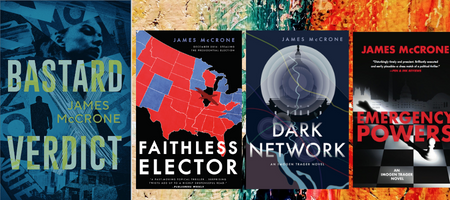[Originally published 2017.03.16]
The fines leveled against the four Washington State Faithless Electors issued by the Washington State secretary of state, have been upheld on appeal by a state judge, the Seattle Times reports.
Washington State first put the Faithless Elector laws into place after Mike Padden, a Republican Elector back in 1976, voted for Ronald Reagan instead of his party’s candidate Gerald Ford. 
Many states have such laws. Most think they would not stand constitutional scrutiny. Indeed, the judge in the case seems to say as much when he notes that he doesn’t have the authority to rule on the plaintiffs’ argument that the Constitution doesn’t give the state the power to punish electors for contrary votes, but that they could argue the constitutionality of the law on appeal.
It has long been held by those who study US elections (see Professor Robert Alexander‘s response, right) that electors were free agents.
People on either side of the issues concerning the Electoral College concede that as conceived–and written–in Article 2, Section 1 of the Constitution, electors are independent actors. It remains to be seen whether the Supreme Court will agree.
This is the first election where fines have been leveled against electors. Thus far, no one has had to appeal a fine levied by a state against a faithless elector, so no one had “standing” to bring a case, and the question has never come before the Supreme Court. It may now.
